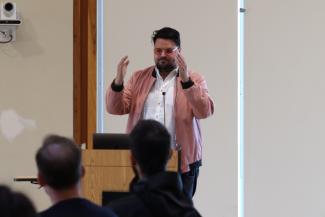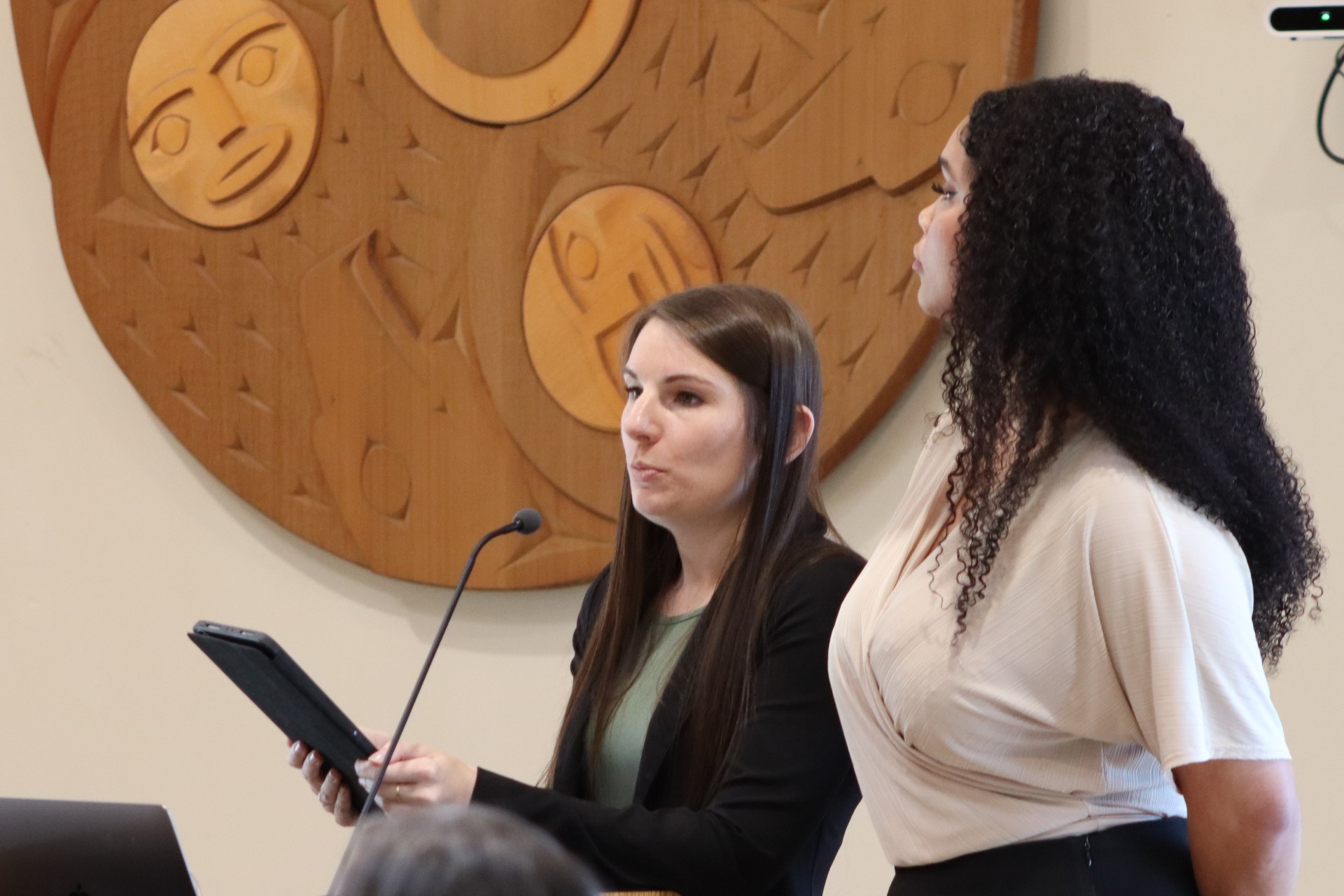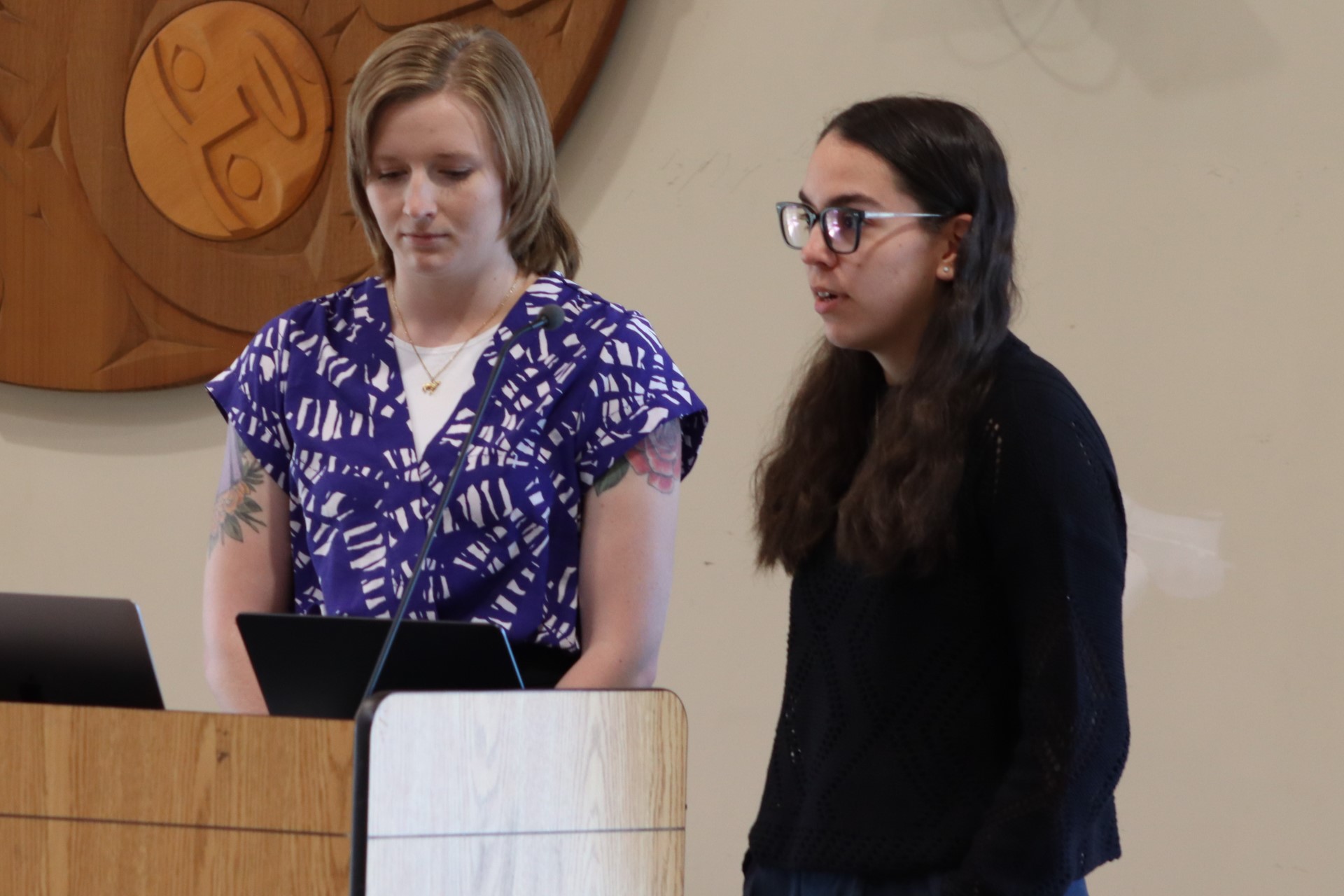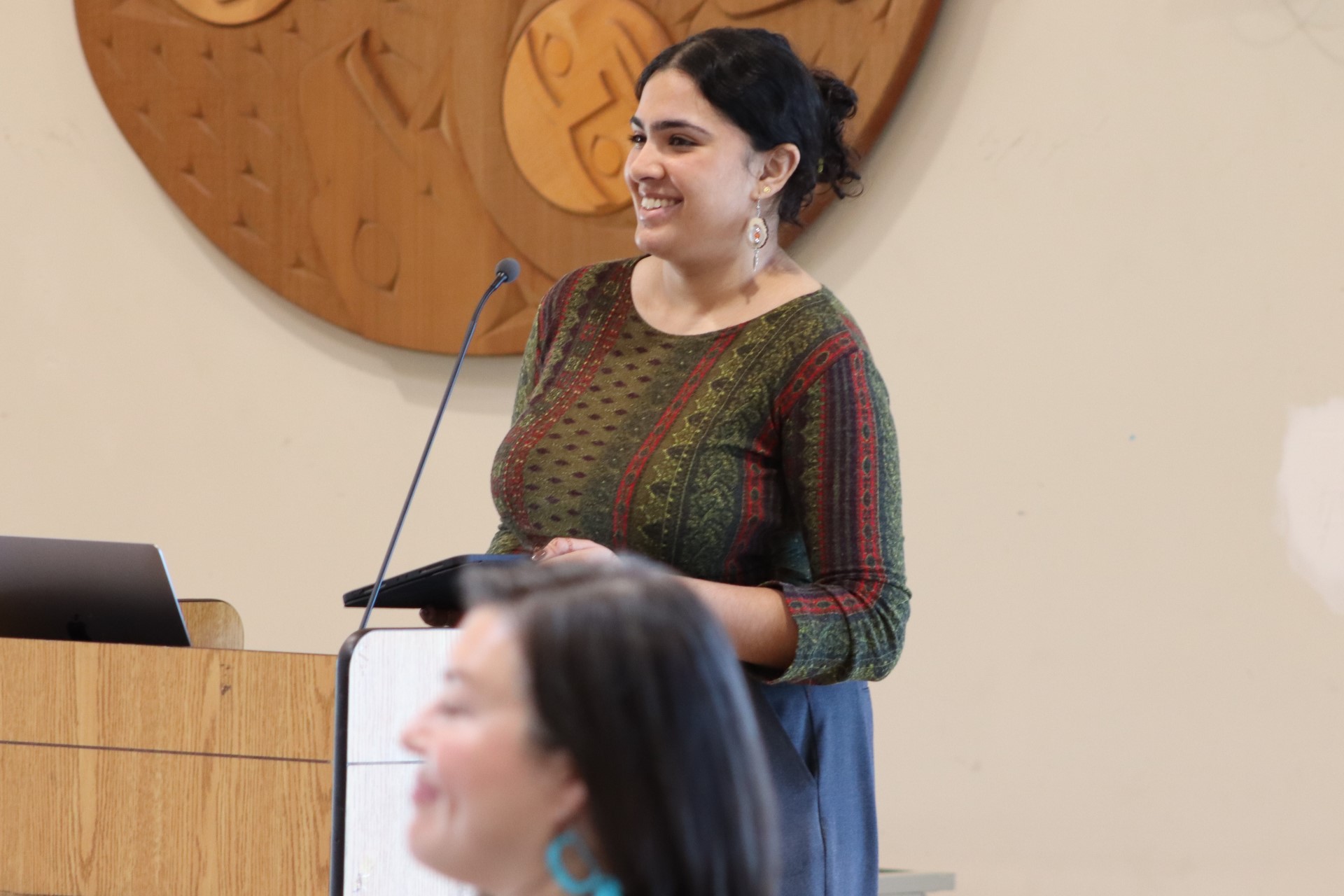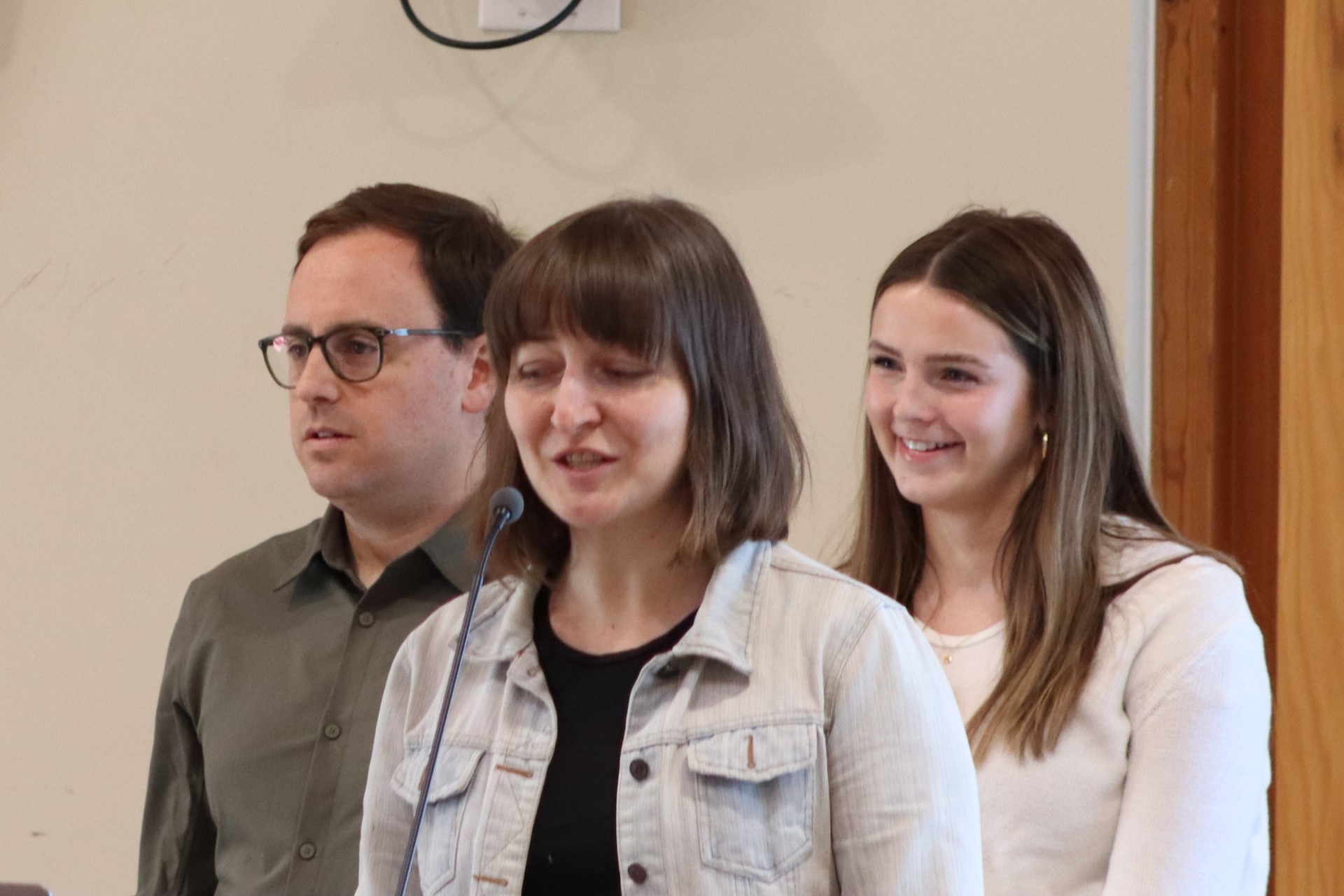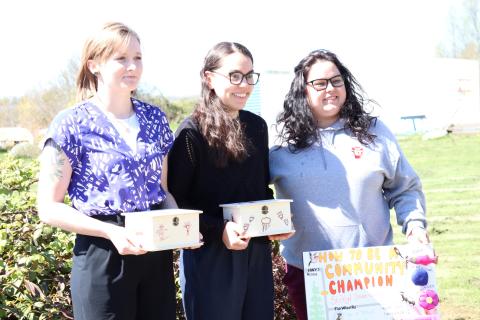
April 29, 2024
On April 16, 2024, SCARP gathered in community for the ICP Practicum final presentations, one of the most special events of the SCARP year.
UBC and the School of Community and Regional Planning gather and teach on the traditional ancestral and unceded territory of the hən̓q̓əmin̓əm̓ speaking xʷməθkʷəy̓əm (Musqueam) people. SCARP were thankful for the chance to gather in community at the Musqueam Cultural Centre, to hear the findings of ICP students who learned and worked on xʷməθkwəy̓əm (Musqueam), Sḵwx̱wú7mesh (Squamish) and sísqeʔ (Siska) land.
Those gathered were welcomed by Musqueam artist Alec Geurin, who said of ICP,
"There is no 'view from nowhere'."
-Deborah McGregor
Jessie Hemphill has described to us before that her language situates everything we describe in its cultural context: all water comes from certain land, all land has a story alongside the people who have curated it, and all people are situated in a cultural context in relationship with the land they inhabit.
In this spirit, one of the most important skills students have learned at ICP is to always describe each of our contexts, including introducing yourself in a good way to our hosts on whose land we have gathered, elaborating from what perspective we each describe what we learn, and storytelling our journeys with a community. With this context we will have truly gathered in community and know each other, and can create together in a good way.
The space we were welcomed into and the facilitation of the event was as usual an inspiration of how any gathering to share knowledge could be: not only sharing knowledge in partnership, but a space of self-care and mutual celebration.
The ICP students, their partners, and their partnerships
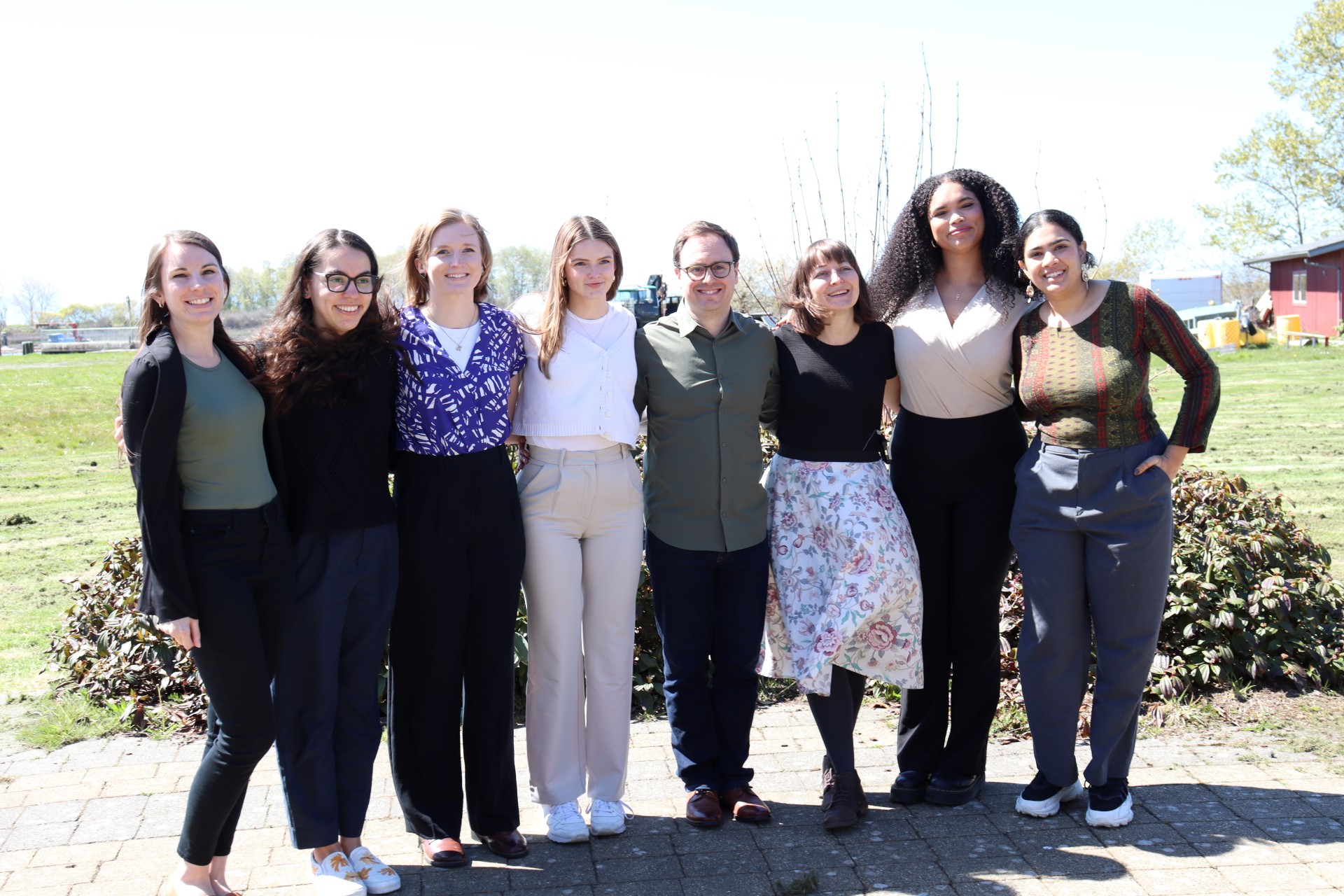
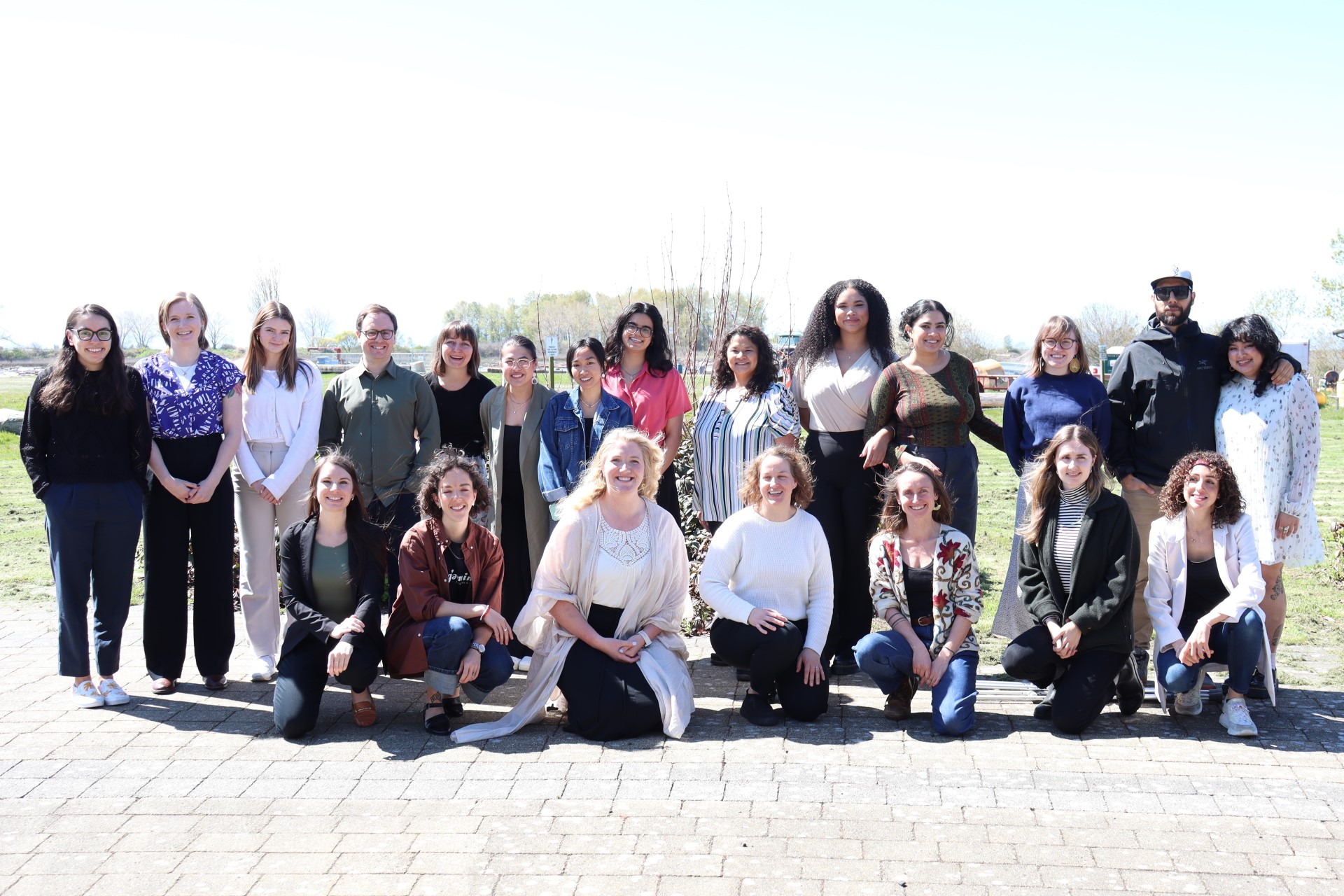
Congrats everyone and thanks for a special day!
